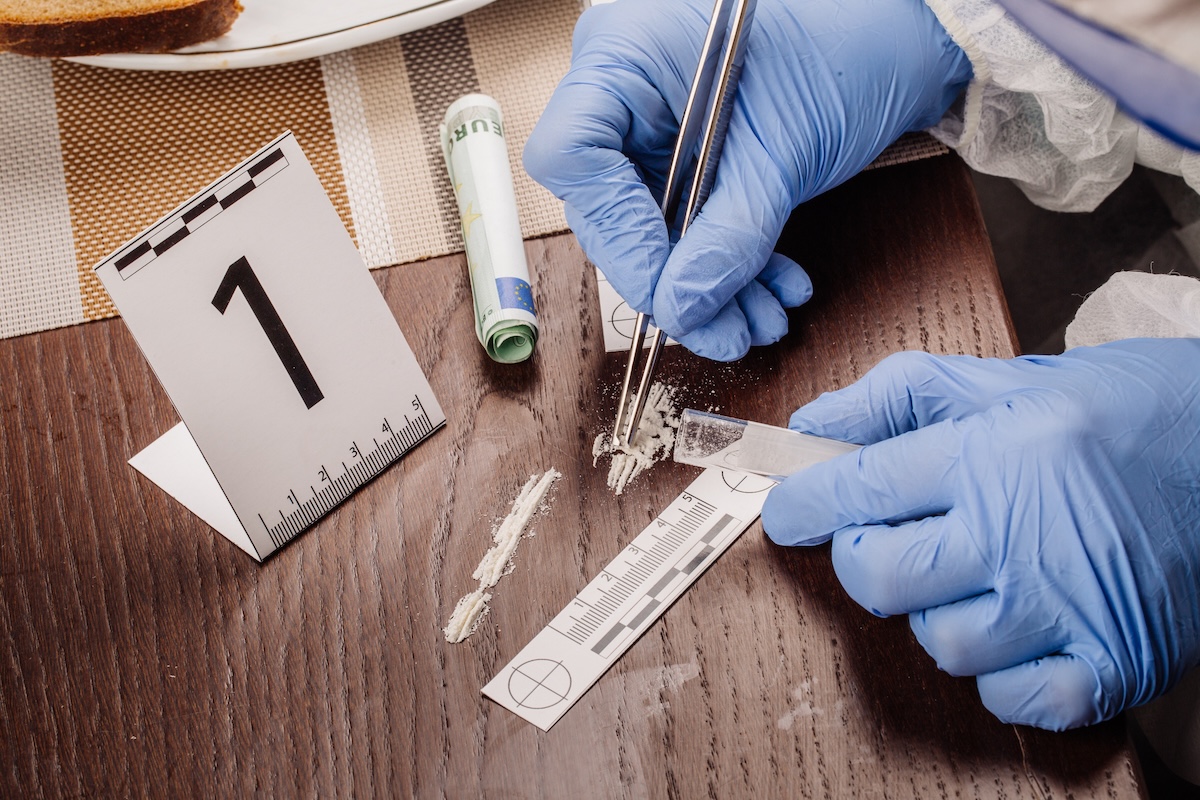In the unrelenting battle against illegal drugs, evidence reigns supreme as the linchpin of successful prosecutions. Drug crime cases hinge on the ability to collect, analyze, and present a comprehensive array of proof tying suspects to alleged offenses.
From the moment an investigation begins until the final arguments in court, evidence takes center stage as the key to achieving justice. This in-depth examination sheds light on the different types of evidence and their multifaceted role and comprehensive legal support for drug crime cases.

Types Of Evidence In Drug Cases
In drug cases, the variety and specificity of evidence play pivotal roles in shaping the course of legal proceedings. Here’s a diverse array of evidence typically encountered in drug-related legal matters, highlighting its significance in the judicial process.
Physical Evidence
- Controlled Substances
The drugs themselves are often the most critical piece of physical evidence in these cases. Whether it’s marijuana, cocaine, heroin, or other illegal narcotics, the presence and quantity of the controlled substances can establish critical elements of drug crimes like possession or distribution. Proper collection, storage, and analysis of these substances are paramount.
- Drug Paraphernalia
Items used for manufacturing, packaging, or consuming illegal drugs can also be introduced as physical evidence. This includes things like scales, baggies, pipes, bongs, and other drug use accessories. Their presence can corroborate allegations of drug activity.
- Cash And Financial Records
Large sums of cash, along with banking and financial records, can indicate profits from drug trafficking when no legitimate income source exists to explain the money. Pay/owe sheets and ledgers documenting drug transactions may also be seized.
Testimonial Evidence
- Eyewitness Accounts
Testimony from witnesses who claim to have directly observed drug crimes can carry significant weight. This could include undercover officers who purchased drugs or witnessed a hand-to-hand transaction.
- Confessions And Statements
The most powerful testimonial evidence comes from admissions by the accused themselves, whether in the form of a full confession or witness statements made during the investigation. However, strict rules govern the legality of how these statements are obtained.
Documentary Evidence
- Text Messages And Call Logs
In today’s digital age, text messages, emails, and call records between co-conspirators are a goldmine of documentary evidence for drug investigations. They can reveal coded language about deals, amounts, and meet-up times.
- Surveillance Footage
Video or photographic surveillance can visually capture drug crimes in action, such as hand-to-hand transfers or suspects entering/exiting areas known for drug activity.
Forensic Evidence
- Chemical Analysis Of Drugs
Forensic chemists use scientific testing and analysis to identify and quantify the specific illegal drugs seized as evidence. This confirms the nature and weight of the controlled substances.
- Fingerprint And Deoxyribonucleic Acid (DNA) Analysis
By linking fingerprints or DNA evidence from the crime scene to suspects, forensic analysis can tie individuals directly to drug evidence like packaging, paraphernalia, or substances.
The Significance Of Evidence In Drug Cases
Evidence plays a crucial role in drug crime cases, serving as the foundation that determines guilt or innocence. Several reasons underscore the overwhelming importance of evidence in these cases:
- Establishing Possession
In drug cases, it’s crucial to prove that the accused had possession of the drugs in question. Evidence can include physical drugs found on a person, in their vehicle, or within their property. Documentation or digital evidence linking the individual to the location or the drugs themselves can also be pivotal.
- Proving Intent
Beyond possession, the prosecution must often prove intent to distribute or manufacture drugs, which elevates the seriousness of the charges. Evidence such as large quantities of drugs, packaging materials, scales, and communications (texts, emails, or social media messages) can indicate intent.
- Determining Substance Type And Quantity
Scientific analysis of the substances is essential to confirm they are illegal drugs and to determine the exact type and quantity. This analysis affects the severity of charges and potential sentencing, as penalties can vary widely depending on the drug type and amount.
- Linking To Trafficking Or Distribution Networks
In cases involving drug trafficking or distribution networks, evidence must demonstrate connections between individuals, locations, and activities. Surveillance footage, financial records, and intercepted communications can be crucial to establish these links.
- Demonstrating Compliance Or Non-compliance With Drug Laws
For defendants, evidence can also demonstrate compliance with drug laws, such as prescriptions for controlled substances or licenses for the cultivation and sale of marijuana in jurisdictions where it is legal.
- Supporting Defenses
Defendants might use evidence to support defenses such as lack of knowledge (proving they were unaware of the presence of drugs), entrapment by law enforcement, or challenging the legality of searches that yielded the drugs (e.g., without a warrant or probable cause).
- Impact On Sentencing
Even after a conviction, evidence can play a crucial role in sentencing. Factors such as the absence of prior convictions, evidence of addiction (which might lead to a focus on rehabilitation), or cooperation with law enforcement can influence the severity of the sentence.
- Chain Of Custody
The integrity of evidence is paramount. Authorities must meticulously document and preserve the chain of custody to prevent claims of tampering or contamination. This includes detailed records of how evidence was collected, stored, and analyzed.
Conclusion
As society continues grappling with the complex issues surrounding illegal drugs, adherence to rigorous evidentiary standards remains crucial for achieving fair and just outcomes in these cases. This comprehensive look at the role of evidence in drug crime prosecutions underscores its significance in the criminal justice process.